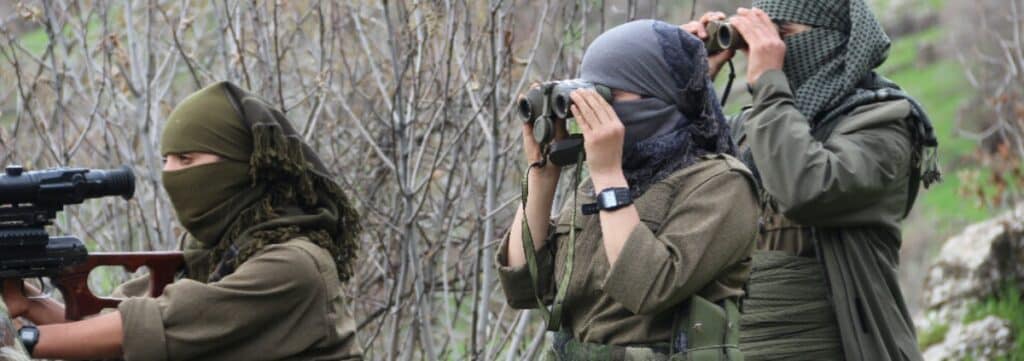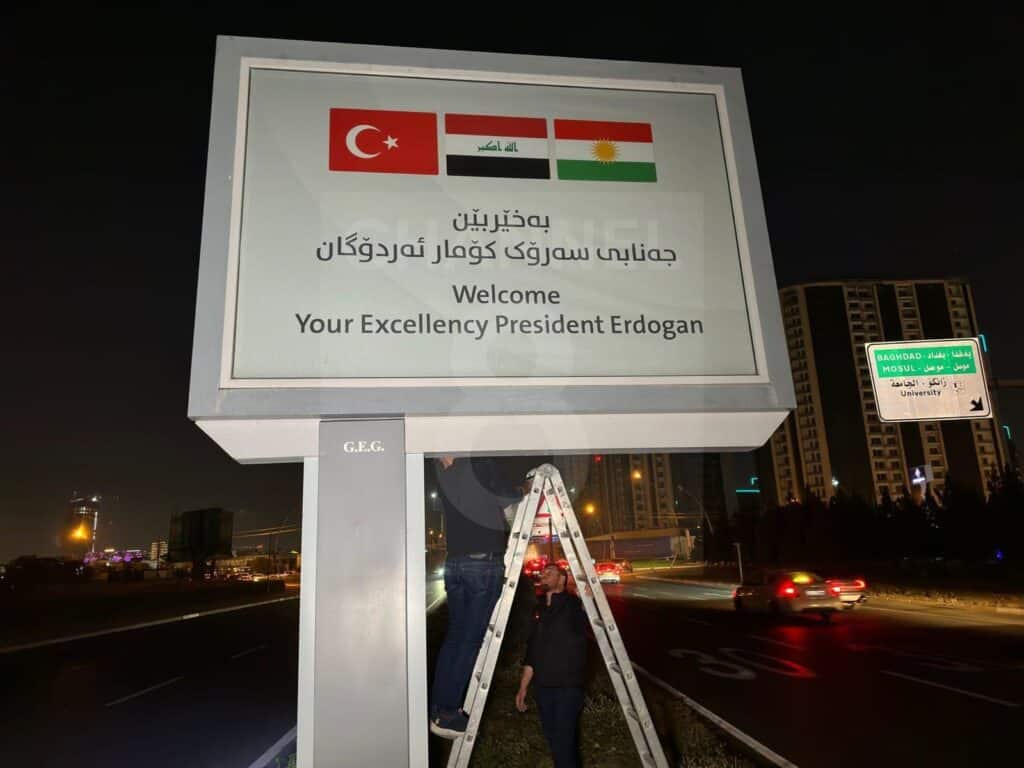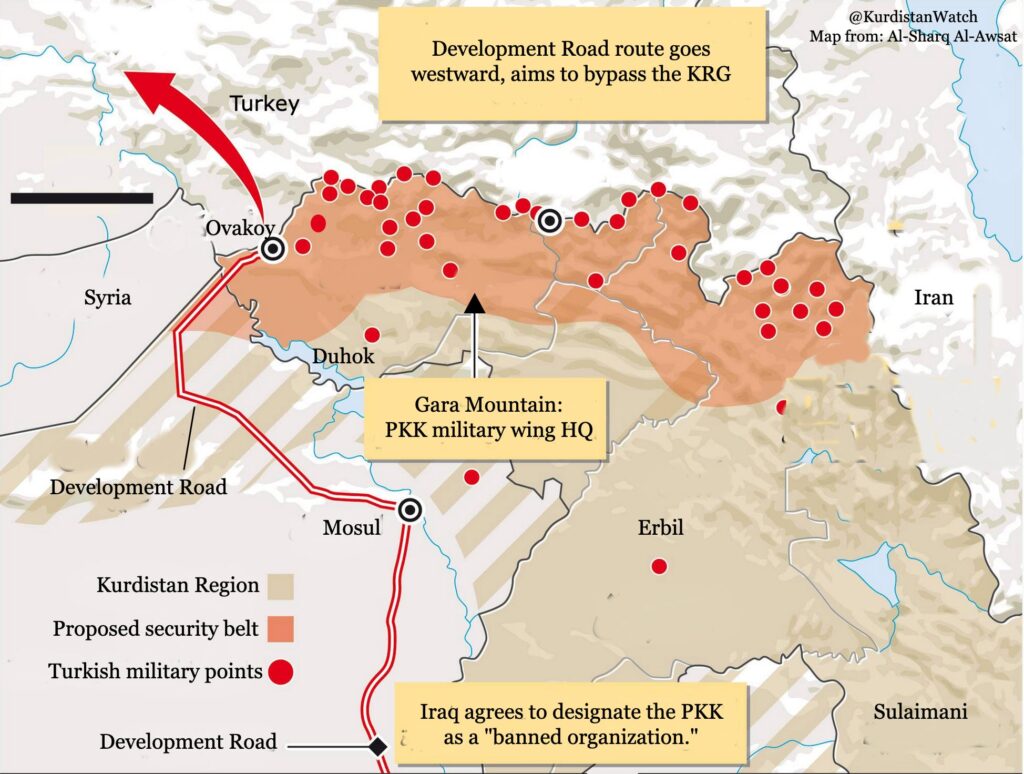Intensified Turkish attacks in Kurdistan and new acts of repression in Europe
April 2024
A new invasion of southern Kurdistan by the Turkish army & geopolitical maneuvers, raids on Kurdish television stations in Belgium & arrests of activists in France: attacks on the Kurdish people and their liberation movement have been raining down non-stop in recent weeks. This analysis helps us to understand the ins and outs of these attacks.
An original article by Collectif Internationaliste Marseille-Kurdistan (CIMK), member of the Serhildan network, originally published in french by Serhildan.org.

On the morning of Sunday April 21, 2024, Turkish forces began an operation in the region of Mêtîna in the Kurdistan mountains of northern Iraq. The aim of this operation is to prepare for the occupation of this territory. Fighting is taking place between the army and PKK (Kurdistan Workers’ Party) guerrillas. The region has already been the target of massive bombardments since April 16, following declarations of a large-scale operation against the guerrillas, with the aim in particular of occupying the Garê mountain.
Fighting is set to intensify in the coming weeks, as Iraqi KDP (Kurdish Democratic Party) forces collaborate with Turkey by providing logistical access from the south, and Erdogan has just signed 26 energy, trade and other partnership agreements with the central Iraqi government. Recently, for the 1st time in its history, the latter agreed to label the PKK a “terrorist organization”. Erdogan announced during the visit that he shared [his] conviction that the PKK’s presence in Iraq will come to an end, while the construction of the “Development Road” – a trade route linking the port of Faw in southern Iraq to Turkey – was also agreed, in the presence of Emirati and Qatari ministers. In Europe, the KCDK-E (Congress of Kurdish Democratic Communities in Europe) is calling for mobilization across Europe. Several rallies have already already taken place in Marseille, and another in Geneva.

And yet, in Southern Kurdistan, the mountains, the support of the local population and, above all, the experience and military inventiveness of the guerrillas have enabled them to fight bravely and successfully for years against NATO’s second army. This despite almost unconditional material support for Turkey from its Western allies and the multiple means used by the Turkish army: chemical weapons, fighter planes, drones and helicopters, as well as attempted ground invasions. During the new phase of Russia’s invasion of Ukraine in the winter of 2022, Turkey made a name for itself on the international stage in a variety of ways, particularly with its deliveries of Bayraktar-TB2 drones to Ukraine. We have known since March 21 that guerrilla forces are capable of destroying these drones, which represent one of the Turkish state’s flagship military tools.
This military setback was accompanied by a heavy political and electoral defeat for the fascist AKP-MHP government in the municipal elections held on March 31. These were once again the scene of fraud, attacks and threats to the self-determination of the local population in the Kurdish regions.
In parallel with this new invasion operation in Southern Kurdistan, three new simultaneous maneuvers took place in Belgium (Denderleeuw, suburb of Brussels), in the Île-de-France and Bouches-du-Rhône regions, and in Turkey (Ankara and Istanbul), targeting the media, journalists and activists.
TV station workers call for protest against "an attack aimed at silencing the voice of the Kurdish people."
On Tuesday April 23, 2024, 8 Kurdish activists were arrested in France. At the same time, in Istanbul and Ankara, Turkey, 7 journalists from the Kurdish press, most of them working for Mezopotamya Ajansi, were arrested during raids by Turkish police.
In addition, on Monday night, police stormed the studios of Stêrk TV and Medya Haber TV in Denderleeuw, near Brussels. The studios were surrounded and workers were forbidden to enter the building. Police searched the premises between 2 a.m. and 6 a.m., seizing computers and technical equipment and destroying numerous installations. Cables were obviously cut in an attempt to prevent broadcasts.
The door of the liaison room, from which the broadcasts are made, was broken down and the equipment inside destroyed. The TV station’s security guards were handcuffed and forced to lie on the floor. Police violence was reported to have occurred on several occasions. TV station workers are calling for protests against an “attack aimed at silencing the voice of the Kurdish people”.

The Kurdistan National Congress (KNK), in its statement, placed the raid in the context of a vast anti-Kurdish operation: “The visits of Turkish government representatives to the USA, Iraq and Iran, the agreements reached with the KDP [the Barzanî clan party in power in South Kurdistan] and the visit of Turkish President Erdoğan to Iraq and the Barzanî are the latest attempts to implement this concept of extermination. The invasion attack on Mêtîna represents the military dimension of this extermination action.” He added: “It is clear that this is an international concept of attack. The attack on the Medya Haber and Stêrk TV studios in Belgium at around 2 a.m. on April 23 is concrete proof of this. […] We cannot remain silent in the face of this attack. It aims to silence the voice of the Kurdish people.”
It should be noted that these raids come on the day of the International Day of Kurdish Journalism, which commemorates the creation of the 1st Kurdish newspaper, Kurdistan, in Cairo, 126 years ago. The timing couldn’t be more revealing: Turkey has publicly aired plans that, if successful, would stifle Kurdish culture and existence, and put an end to experiments in a more solidary society that have inspired people all over the world.
Faced with the obvious silence of the bourgeois media, the vast majority of society, but also its progressive forces, remain misinformed about what is happening in Kurdistan. Yet these apparently local problems are not isolated. They are the product of interdependent forces and of international and global change. What happens in one place affects others, and how the world reacts to one problem affects others too. The struggle of the Kurdish liberation movement is part of a more general struggle against the forces of capitalism and imperialism that are also tearing Palestine apart, undermining social services and ultimately destroying our planet.
